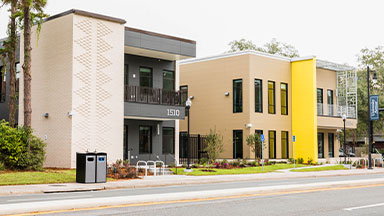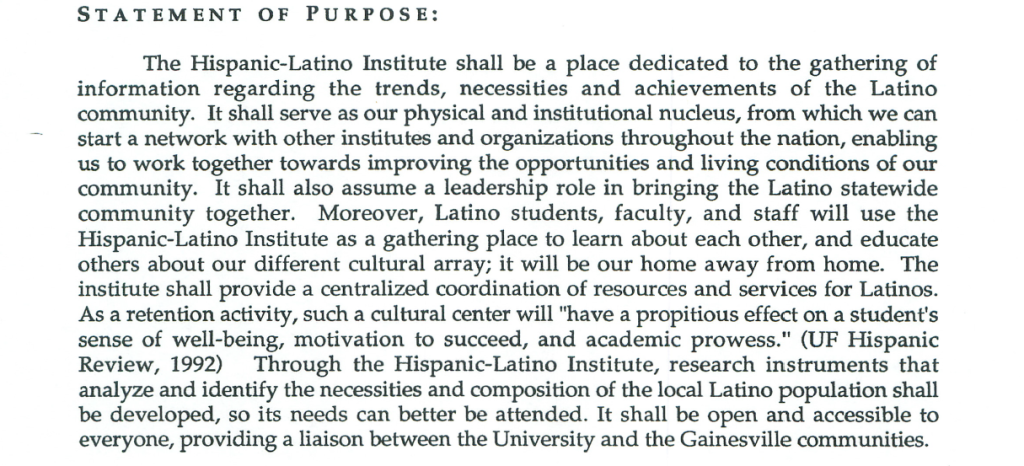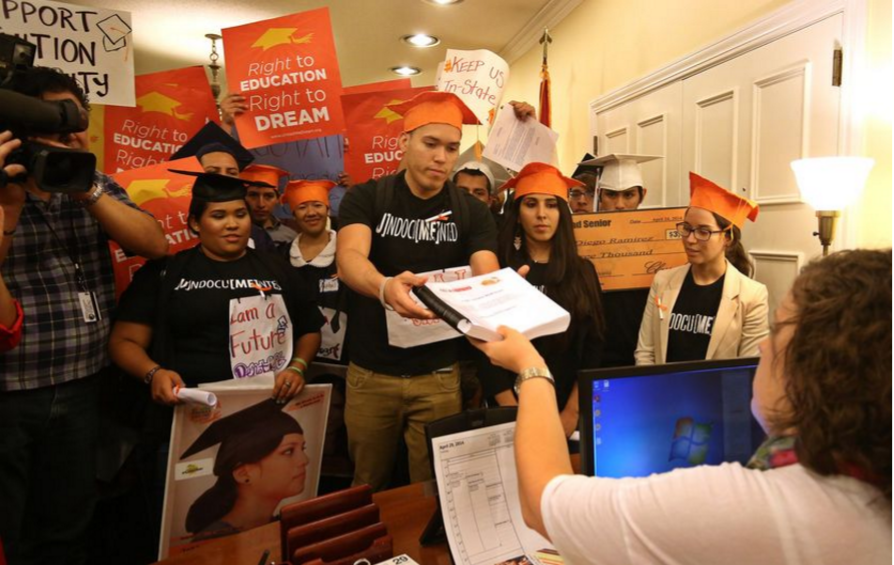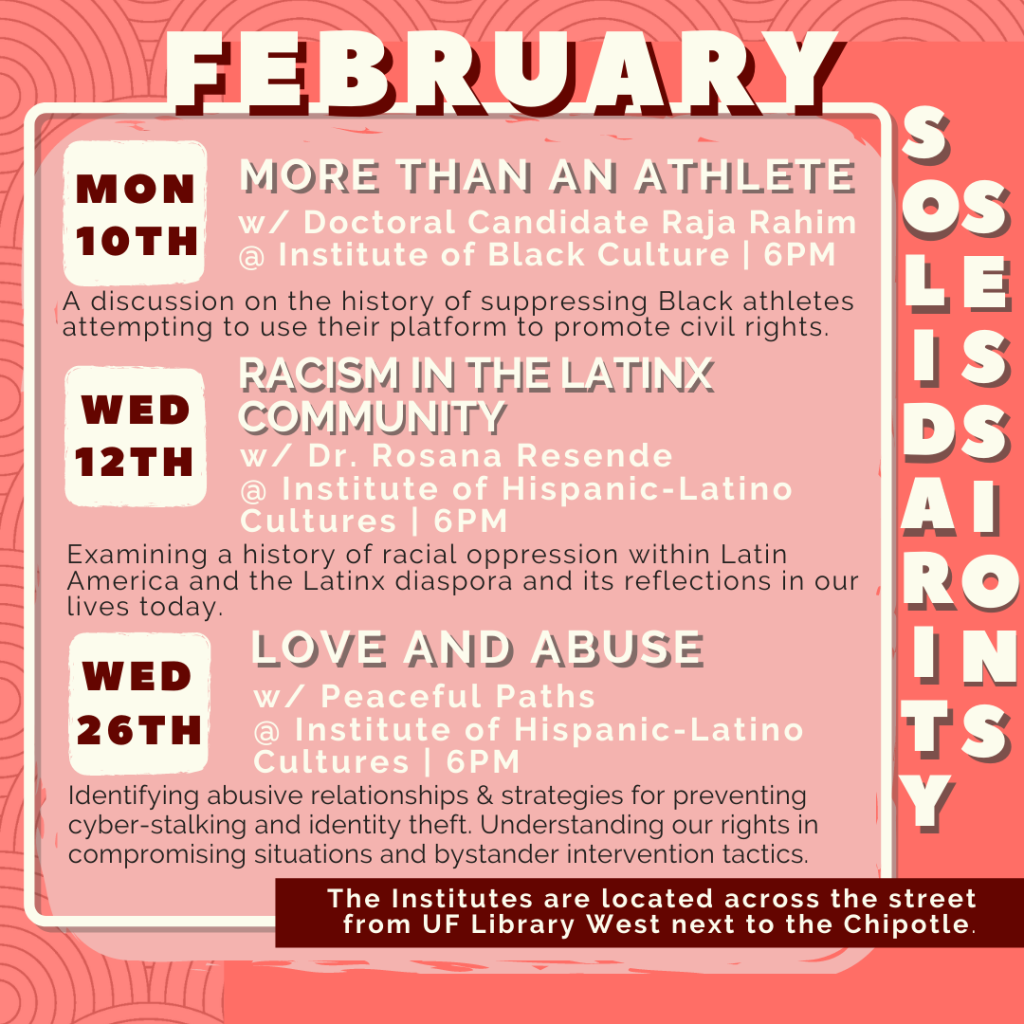
During my 4 years at the University of Florida, I have seen an enormous need for a space where the tough conversations are had. In the fall of my freshman year, the Institute of Hispanic-Latino Cultures, better known as La Casita, was torn down and we were left with the Hispanic-Latino Engagement Center (also known as La Salita) in the Reitz Union. While La Salita represented a space where people in our community could come together, we were missing the essence of what La Casita has represented for the Hispanic-Latinx community on this campus since 1994.
As the years passed, I became more and more involved with the Hispanic Student Association and saw face-to-face the challenges that we are confronted with every day, not only by this institution, but by one another. In my senior year as president of HSA, but also as a member of the Latinx Diaspora in the Americas Project here at SPOHP, I came to learn just how important our institute was, and continues to be to this day.
“La Casita is so much more than a home away from home, as all the flyers advertise it.”

Statement of Purpose written in the proposal for the Institute of Hispanic-Latino Cultures written on March 30, 1993.
La Casita is so much more than a home away from home, as all the flyers advertise it. La Casita is an institute, which means it is first and foremost a place to learn about ourselves, our culture, and the obstacles our people face at UF. It is the place where faculty, staff, community members and students once came together to host teach-ins, discussions, and organize in order to improve this institution for people of color, among others. Therefore, although it is without a doubt an amazing place to relax, catch up with friends, listen to reggaeton, and watch some novelas on the big screen in the sala, it also needs to be a place where our concerns and criticisms are heard and addressed.
In both of my roles in HSA and at SPOHP, I have been incredibly lucky to have come across people who felt the same. Together, we have created what is going to be known as the Solidarity Sessions. These sessions are a series of 5 discussion dates in which we bring together different community organizations, faculty, staff and students to highlight issues within our community, but also to educate one another. These sessions represent the essence of what made La Casita that so many remember dearly, even if they have not stepped foot in it for years.

The Solidarity Sessions at La Casita will feature faculty like Dr. Rosana Resende and Dr. Nicholas Vargas from the Center for Latin American Studies, community organizations such as Peaceful Paths, graduate students, and Dr. Zully Rivera from the Counseling and Wellness Center. Each discussion is centered around a topic that we feel is critical to revive the sense of advocacy and activism that La Casita emerged from in the first place, and to make sure that while we enjoy the privileges of it as a social and cultural space, we do not become complacent and fail to move forward.
This initiative is not only exclusive to La Casita and the Hispanic-Latinx community because the same applies to the Institute of Black Culture (IBC) as it was recently inaugurated as well. SPOHP has made a great effort for this series to take place in the Institute of Black Culture as well in collaboration with the UF chapter of the National Association for the Advancement of Colored People. The Solidarity Sessions at IBC will feature faculty like Dr. Patricia Hilliard Nunn and Dr. Vincent Adejumo as well as Peaceful Paths, and a special session will include a Capoeira lesson.
The discussions will take place bi-weekly, twice a month in each space interchangeably so that we encourage constant dialogue and discussion in both spaces in order to continue the spirit and the essence that the institutes were born out of.
The Solidarity Sessions will begin on February 10th at IBC and February 12th at La Casita and will continue until mid-April.
By Isabella Oliver
